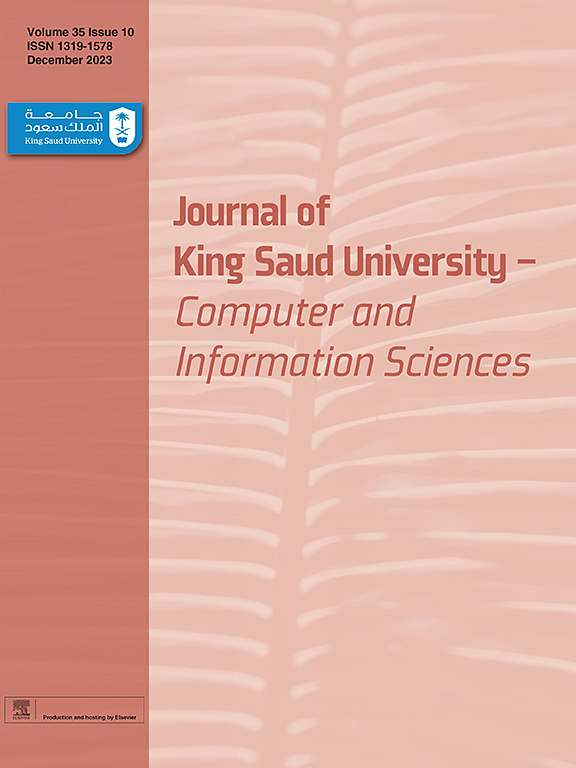链上零知识机器学习:概述与比较
IF 5.2
2区 计算机科学
Q1 COMPUTER SCIENCE, INFORMATION SYSTEMS
Journal of King Saud University-Computer and Information Sciences
Pub Date : 2024-10-05
DOI:10.1016/j.jksuci.2024.102207
引用次数: 0
摘要
零知识证明引入了一种机制,用于证明某些计算是在不透露任何底层信息的情况下进行的,常用于基于区块链的去中心化应用程序(dapps)。这种加密技术解决了区块链应用中普遍存在的信任问题,现在已被用于机器学习(ML)服务,即零知识机器学习(ZKML)。通过利用区块链的分布式特性,这种方法提高了 ML 部署的可信度,并为 dapps 中保护隐私和稳健的 ML 应用开辟了新的可能性。本文全面概述了 ZKML 流程及其用于验证链上 ML 服务的关键组件。此外,本文还探讨了区块链技术和智能合约如何提供可验证的无信任证明,证明特定的 ML 模型已被正确用于执行推理,而无需依赖单一的可信实体。此外,本文还比较和回顾了在 dapp 中实施 ZKML 的现有框架,为对这一新兴领域感兴趣的研究人员提供了参考。本文章由计算机程序翻译,如有差异,请以英文原文为准。
On-chain zero-knowledge machine learning: An overview and comparison
Zero-knowledge proofs introduce a mechanism to prove that certain computations were performed without revealing any underlying information and are used commonly in blockchain-based decentralized apps (dapps). This cryptographic technique addresses trust issues prevalent in blockchain applications, and has now been adapted for machine learning (ML) services, known as Zero-Knowledge Machine Learning (ZKML). By leveraging the distributed nature of blockchains, this approach enhances the trustworthiness of ML deployments, and opens up new possibilities for privacy-preserving and robust ML applications within dapps. This paper provides a comprehensive overview of the ZKML process and its critical components for verifying ML services on-chain. Furthermore, this paper explores how blockchain technology and smart contracts can offer verifiable, trustless proof that a specific ML model has been used correctly to perform inference, all without relying on a single trusted entity. Additionally, the paper compares and reviews existing frameworks for implementing ZKML in dapps, serving as a reference point for researchers interested in this emerging field.
求助全文
通过发布文献求助,成功后即可免费获取论文全文。
去求助
来源期刊

Journal of King Saud University-Computer and Information Sciences
COMPUTER SCIENCE, INFORMATION SYSTEMS-
CiteScore
10.50
自引率
8.70%
发文量
656
审稿时长
29 days
期刊介绍:
In 2022 the Journal of King Saud University - Computer and Information Sciences will become an author paid open access journal. Authors who submit their manuscript after October 31st 2021 will be asked to pay an Article Processing Charge (APC) after acceptance of their paper to make their work immediately, permanently, and freely accessible to all. The Journal of King Saud University Computer and Information Sciences is a refereed, international journal that covers all aspects of both foundations of computer and its practical applications.
 求助内容:
求助内容: 应助结果提醒方式:
应助结果提醒方式:


